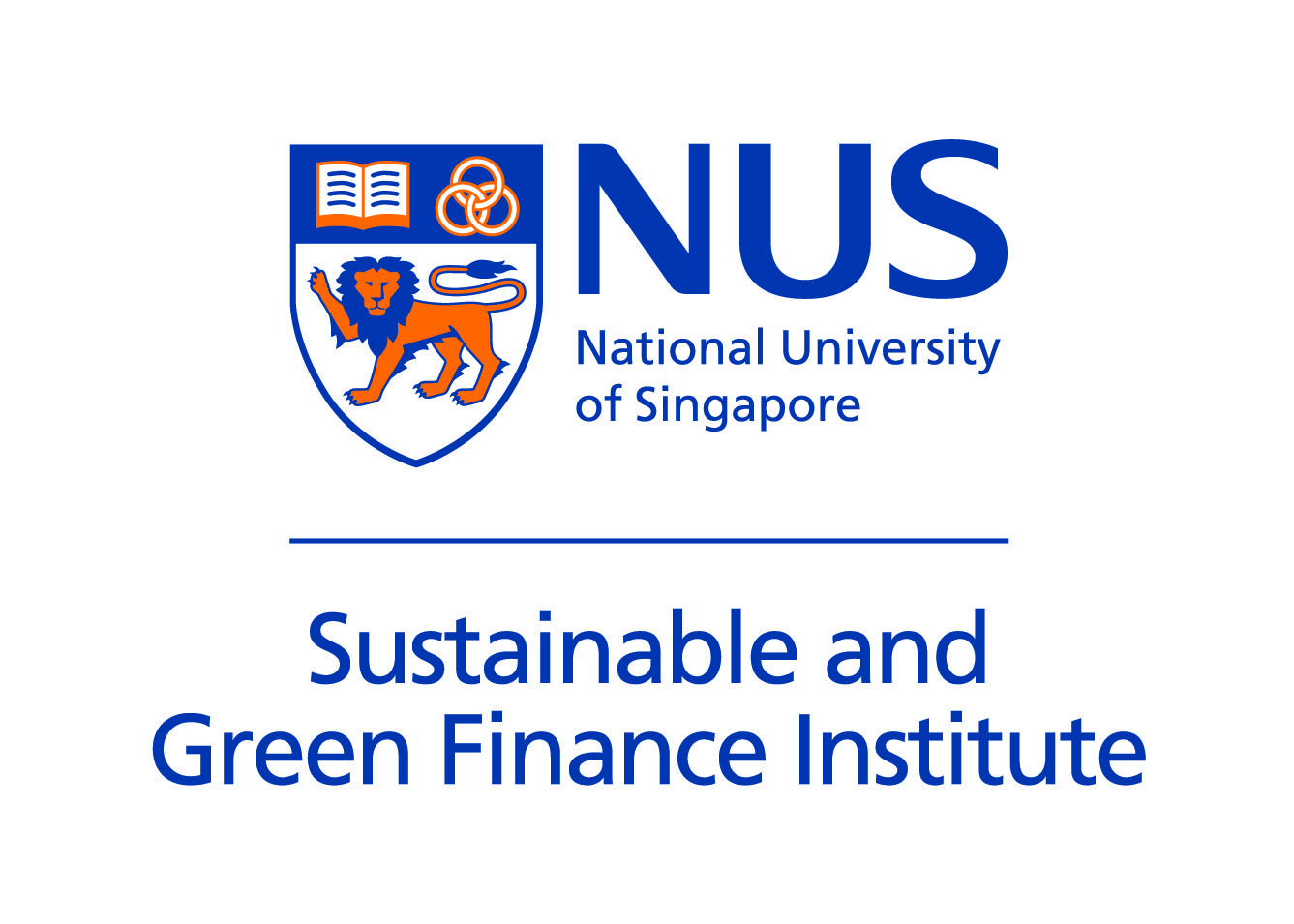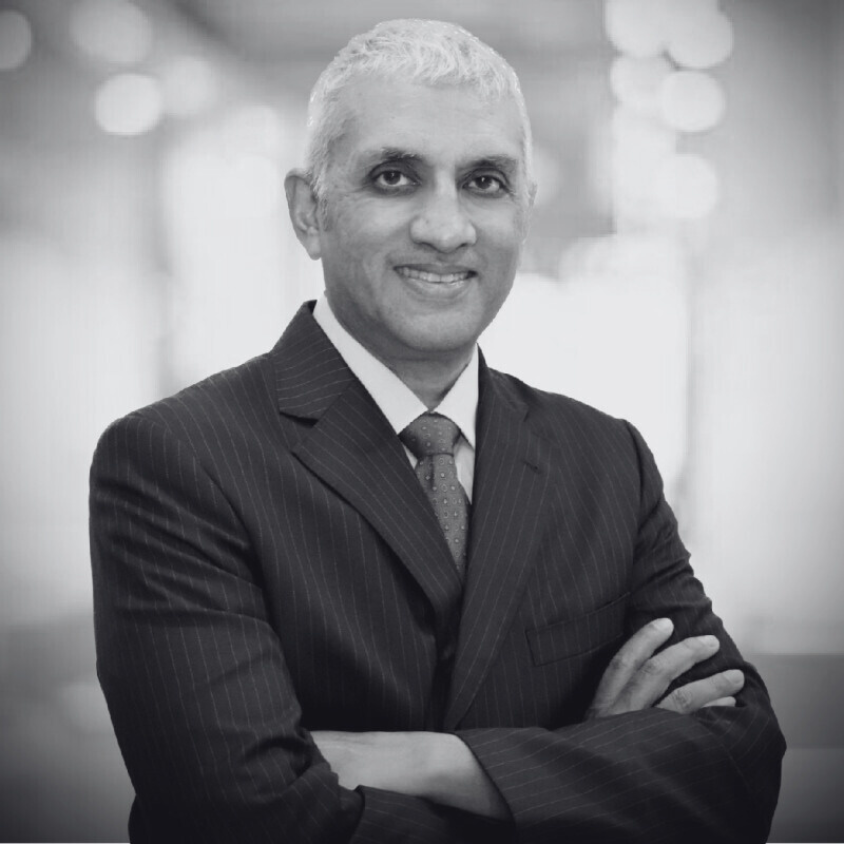

Singapore
2025
Financing the future: Actions for a region in transition

October 21, 2025

ParkRoyal Marina Bay, Atrium Ballroom, Level 5
Singapore

Singapore

October 21, 2025

ParkRoyal Marina Bay, Atrium Ballroom, Level 5

S$180 (Early bird)

Register for tickets
Synopsis
Asia Pacific’s economic landscape is being reshaped by unprecedented geopolitical and trade tensions. These pressures – from rising tariffs to protectionist policies and ongoing policy uncertainty – are expected to moderate the region’s growth trajectory.
Yet despite the challenging macroeconomic environment, Asia Pacific remains a bright spot in the global economy, united by a shared commitment to sustainable development and the urgent imperative to finance a sustainable future.
Policymakers, businesses and society at large must navigate these shifting geoeconomic realities, even while countries will vary significantly in their capacity to adapt and respond effectively. At this pivotal moment, the 2025 edition of Unlocking capital for sustainability – Singapore provides a crucial platform to mobilise innovative financing solutions that blend public and private capital, sustaining market-driven progress amid a fractured global trade environment.
This high-level forum will address a wide range of pressing issues, including reforming financial architectures to lower capital costs and scale climate-aligned investments, harnessing the accelerating impact of artificial intelligence, expanding disclosure mandates, strengthening compliance carbon markets, advancing and exploring the intersections of climate, health and resilience.
With COP30 in Brazil on the horizon, climate mitigation targets are gaining renewed momentum, underpinned by the growing recognition that sustainability-oriented investments generate jobs, income and long-term economic growth.
Spanning six Asian locations – Hong Kong, Indonesia, Malaysia, Philippines, Thailand and culminating in a closing summit in Singapore, Unlocking capital for sustainability 2025 invites key stakeholders to collaboratively address these critical challenges.
In its eighth edition, this flagship conference will accelerate the mobilisation of capital and innovation necessary to position Asia-Pacific as a global leader in financing the future.
Key Speakers
Speakers
Atty Federico Tancongco
Senior Vice President and Chief Compliance Officer, Head of Compliance and Legal Department, BDO Unibank
Tancongco
Speaking on:


Vanessa Wilfred
Deputy Director (AI Governance and Safety), Infocomm Media Development Authority of Singapore
Wilfred
Speaking on:


Daniel Lee
Associate Professor (Practice), College of Business (Nanyang Business School) and Director, Carbon Markets Academy, College of Business (NBS)
Lee
Speaking on:


Sunita Lukkhoo
Regional Head for Southeast Asia & Pacific, European Investment Bank
Lukkhoo
Speaking on:


Dr. Amy Khor
Former Senior Minister of State, Ministry of Sustainability and the Environment, Singapore
Khor
Speaking on:


Agenda
9:15
9:30
Opening speech by distinguished guest
10:00
Fireside chat - Conflict and climate in the 21st century
Conflict and climate are two defining challenges of the 21st century, increasingly interconnected in ways that threaten global stability, prosperity, and human security.
Armed conflicts continue to destabilise entire regions, displacing populations and diverting resources away from development and climate action. At the same time, the accelerating impacts of climate change—rising sea levels, extreme weather, and food insecurity—are exacerbating vulnerabilities, often acting as risk multipliers in already fragile settings.
In this fragmented geopolitical landscape, where distrust and protectionism often overshadow collaboration, mobilising capital for sustainable development is becoming more difficult than ever at a time when it is needed most.
As the world faces mounting volatility, leaders must ask: How can they best navigate these intertwined challenges? What resources and data can guide sound investment and policy decisions? And how can trust and multilateralism be reinforced to ensure financial flows align with global priorities?
This opening fireside chat will delve into the innovative approaches that can help overcome fragmentation and unlock the collaborative potential needed to reach our shared Global Goals.
10:30
Opening plenary – Financing the future: Actions for a region in transition
Asia’s transition to a low-carbon economy is rapidly becoming the critical market opportunity of the decade, with sustainable finance emerging as a catalyst for investment, innovation, and regional economic resilience.
Home to the world’s fastest-rising energy demand, the region is witnessing an acceleration in green bonds, sustainability-linked loans, blended finance and emerging innovative mechanisms as market players respond to evolving climate ambitions, changing geopolitics, policy frameworks, and rising consumer expectations.
In particular, the emergence of transition finance – which funds carbon-intensive sectors that are committed to credible, time-bound decarbonisation plans – is enabling the region’s notorious hard-to-abate sectors to move progressively towards net zero targets. But what safeguards do we need to ensure these goals are met?
Meanwhile, the twin engines of technological innovation and strategic financing are making Asia an increasingly attractive destination for global capital, setting new benchmarks how we finance the future amid a multipolar world. How can the region capitalise on this momentum to attract large scale capital? What policy frameworks do we need to mobilise financing for the future?
Speakers
11:20
Plenary 2 – Steering through headwinds: Mobilising finance in a fragmented world
Mobilising the trillions needed for the low-carbon transition requires more than ambition—it demands clarity, scale, and confidence in financial markets. Yet these efforts are constrained today by a multipolar world marked with fragmentation.
With nearly 500 sustainable finance frameworks globally, diverging taxonomies and disclosure standards risk creating silos instead of scale, complicating capital allocation into renewable energy, resilient infrastructure, and transition technologies. Political headwinds—most visible in the US backlash against ESG—threaten to stall momentum towards global alignment.
Convergence initiatives such as the ASEAN Taxonomy for Sustainable Finance, the Singapore-Asia Taxonomy, and the ISSB’s IFRS S1 and S2 standards offer a common starting point, but rules alone are not enough. Mobilising finance in a fragmented world also requires de-risking vehicles that crowd in private capital, blended finance models that leverage public funds for impact-driven projects, and policy frameworks that provide the long-term certainty investors need. Equally critical is addressing the cost of capital in emerging markets, where investment is urgently needed but financing remains prohibitively expensive.
High-quality data and disclosures sit at the heart of this transformation, enabling market confidence and accountability. But ultimately, large scale capital will flow only if investors see credible pipelines of bankable, climate-aligned projects underpinned by both strong governance and policy coherence. This plenary convenes experts to explore how to overcome market fragmentation and strengthen the trust and partnerships which can mobilise capital in the current climate.
Speakers
12:15
The Liveability Challenge 2026 spotlight
14:00
Plenary debate - This house believes AI needs to be urgently regulated for sustainable development outcomes.
Artificial intelligence (AI) is reshaping our world at an unprecedented pace, promising enormous potential—and equally dangerous risks —for sustainable development.
The IMF estimates that AI-driven productivity gains could boost global GDP by up to 4 percent in the next decade. Yet these gains will not be shared evenly. Advanced economies, with stronger infrastructure and greater access to data, stand to benefit far more than developing nations, deepening global divides.
At the same time, AI is proving transformative in accelerating integrated nature and climate action —optimising water use, revolutionizing agriculture, and powering climate and weather prediction models that could help societies leapfrog traditional limitations. Yet its benefits come at a huge environmental cost – data centres consume vast amounts of electricity, generating emissions and requiring massive volumes of water. The UN warns that by 2027, AI could be consuming 4.2–6.6 billion cubic meters of water annually—a significant burden on already strained resources.
Debates have emerged whether society should act decisively now to steer this powerful technology toward the common good – or be left to market forces. And if so – what guardrails need to be in place? This plenary debate will put in sharp focus regulatory approaches and how we can meaningfully benefit from AI’s potential and mitigate its risks.
Speakers
14:45
In conversation with TNFD - Shaping the future of business through biodiversity reporting
Natural ecosystems provide trillions of dollars in economic value annually, yet many businesses still underestimate the escalating risks that biodiversity loss and climate change pose to supply chains and long-term resilience.
With over half of global GDP moderately or highly dependent on nature, companies face mounting risks from resource scarcity, higher raw material costs and regulatory shifts as governments respond to reverse biodiversity loss, as pledged in the Kunming Montreal Global Biodiversity Framework (GBF), a global agreement to protect 30% of the biodiverse areas by 2030. Striking the balancing between ecological conservation and economic stability will be key for the region.
The Taskforce on Nature-related Financial Disclosures (TNFD) provides a crucial guide for organizations to assess, disclose, and strategically manage nature-related risks and opportunities. Leading Asian companies are setting new benchmarks by embedding nature considerations into their core strategies—moving beyond basic compliance and reframing biodiversity and ecosystem health as indispensable economic assets.
This session will convene early adopters and standard setters to explore the rapidly shifting regulatory landscape and deep dive into why rigorous biodiversity reporting is essential for future-proofing business viability.
15:30
Plenary 3 – Building resilient and adaptive economies for a changing climate
Asia is at the heart of the climate crisis, warming at twice the rate of the global average and increasingly besieged by extreme heatwaves, catastrophic floods, and other climate-related disasters. The consequences are significant – beyond the trillions of dollars in economic losses and infrastructure damage, healthcare systems are under mounting stress as global warming worsens vector-borne diseases, food and water insecurity, and mental health challenges driven by repeated shocks.
According to the World Health Organization, climate change is projected to cause approximately 250,000 additional deaths per year worldwide between 2030 and 2050 —impacts that will fall disproportionately on vulnerable communities who often lack access to healthcare, insurance coverage, or financial safety nets.
Insurance can play a critical role in closing this protection gap, offering innovative mechanisms such as climate risk insurance, parametric payouts for extreme weather events, and microinsurance for low-income households. These solutions, when paired with nature-based adaptation measures and early-warning systems, can help safeguard livelihoods and speed recovery from climate shocks.
Asia must urgently strengthen climate resiliency through integrated approaches that connect planetary health, human wellbeing, and financial protection. This includes mobilising capital for the climate-health nexus—one of the most underfunded areas globally—while expanding inclusive insurance schemes that ensure no one is left behind.
This session brings together leaders in climate, health, and financial services to chart pathways that can withstand the accelerating impacts of climate change, protect public health, and direct investment and insurance innovation to the regions and communities most at risk.
16:30
Closing plenary – Unlocking the potential of carbon solutions for a net zero economy
Asia Pacific’s race toward net-zero economies by 2050 is driving a new wave of innovation and policy action to scale carbon removal and management solutions.
Across the region, governments are advancing frameworks to enable this transition. Singapore is forging cross-border carbon trading through bilateral agreements under Article 6.2 of the Paris Agreement; Malaysia has introduced a Carbon Capture, Utilisation and Storage (CCUS) Act and China has launched a national carbon trading scheme to accelerate collaboration on decarbonisation.
Beyond technological advances, Asia Pacific hosts some of the world’s richest natural carbon sinks – including forests, peatlands and coastal ecosystems – that play a crucial role in large-scale, nature-based carbon sequestration.
With carbon removal demand projected to reach 1–8 billion tonnes annually by 2050, the challenge lies in scaling these solutions both rapidly and responsibly. High-integrity carbon projects must balance growth with environmental protection, ensuring credibility and climate impact.
This session brings together leading investors and experts to explore how technology, policy, and cross-border partnerships can unlock the region’s carbon ecosystem potential — while navigating risks and ensuring equitable, verifiable outcomes.
Speakers
17:15
17:30
9:50
Partners
In partnership with
Strategic partner

Visit website
AIA
AIA Group is the largest pan-Asian life insurer with a presence in 18 markets. The business that is now AIA was first established in Shanghai in 1919. It is a market leader in Asia (ex-Japan) based on life insurance premiums and holds leading positions across the majority of its markets. It had total assets of US$289 billion as of 30 June 2024.
Find out more

Visit website
RGE
Headquartered in Singapore, RGE is a global group of companies in the bio-based resources and energy sectors, serving over 100 markets worldwide. With more than US$40 billion in assets and a workforce of 80,000 employees, our operations span across Indonesia, China, Brazil, Canada, Spain, and Malaysia. As a global leader in sustainable natural fibres, edible oils, green packaging, and cleaner energy solutions, we play a vital role in feeding, clothing, and improving the lives of billions every day.
Find out more

Visit website
UOB
United Overseas Bank Limited (UOB) is a leading bank in Asia with a global network of about 500 branches and offices in 19 countries and territories in Asia Pacific, Europe and North America. We believe in being a responsible financial services provider and we are committed to making a difference in the communities in which we operate.
Find out more

Visit website
BDO Unibank
BDO Unibank is a full-service universal bank in the Philippines, providing a complete array of industry-leading products and services including Lending (corporate and consumer), Deposit-taking, Foreign Exchange, Brokering, Trust and Investments, Credit Cards, Retail Cash Cards, Corporate Cash Management and Remittances. Through its local subsidiaries, the Bank offers Investment Banking, Private Banking, Leasing and Finance, Rural Banking, Life Insurance, Insurance Brokerage, and Online and Traditional Stock Brokerage services.
Find out more
Supporting partner

Visit website
Pollination
Pollination is a specialist climate change investment and advisory firm dedicated to accelerating the transition to a net-zero, nature positive future. It works with clients across government, business, and public and private capital, helping them to navigate the climate transition. Pollination is also developing several net-zero-focused investment platforms and is a partner in Climate Asset Management, a joint venture with HSBC that currently has US$650m in Assets under Management, across natural capital and carbon strategies.
Find out more

Visit website
Swiss Re
Risk Data Solutions equips clients with integrated intelligence to navigate uncertainty and act decisively. We combine Swiss Re’s data, models, technology and advisory into one connected experience designed around the realities insurers, corporates and the public sector face every day. Our offering supports every step of the risk lifecycle. Clients can assess exposure more precisely, manage risk and respond faster to unfolding events, and optimise portfolios for performance, compliance and long-term resilience. Each solution is built into real-world workflows to provide clarity where decisions matter most. Risk Data Solutions is not just about mitigating risk. It is about helping clients uncover opportunity, grow through uncertainty and act with confidence in a world defined by change. We enable the decisions that drive resilience, relevance and results.
Find out more

Visit website
InvestHK
Invest Hong Kong (InvestHK) is the Hong Kong Special Administrative Region (HKSAR) Government Department responsible for Foreign Direct Investment. InvestHK’s vision is to strengthen Hong Kong’s status as the leading international business location in Asia. Our mission is to attract and retain foreign direct investment which is of strategic importance to the economic development of Hong Kong.
Find out more
Networking partner

Visit website
South Pole
South Pole is the world's leading carbon asset developer and climate consultancy. Since 2006, it has been a trusted advisor to governments, public sector organisations, and businesses on decarbonisation, and has used the power of markets to help channel climate finance to over 850 projects worldwide.
Find out more
Knowledge partner

Visit website
World Climate Foundation
The World Climate Foundation is the most influential global platform focusing on accelerating action and creating impact for fighting climate change, restoring biodiversity and ensuring health resilience.We facilitate large-scale collaboration between governments, businesses, financial institutions and international organisations, enabling the transition to a net-zero, nature-positive future. We promote cross-sectoral partnerships that accelerate innovation in technologies, policies and investments and promote demand to deliver solutions for climate, biodiversity and health.
View full partner details

Visit website
TPI Global Climate Transition Centre (TPI Centre)
Established in June 2022, the TPI Global Climate Transition Centre (TPI Centre) is a research centre at the London School of Economics and Political Science (LSE) providing independent, rigorous, forward-looking research and data to enable investors to encourage and support the transition to a low-carbon economy.
View full partner details
Outreach partner

Visit website
Asia Investor Group on Climate Change (AIGCC)
Asia Investor Group on Climate Change (AIGCC) is an initiative to create awareness and encourage action among Asia’s asset owners and asset managers about the risks and opportunities associated with climate change and low-carbon investing.
View full partner details

Visit website
Centre for Sustainable Finance Innovation (CSFI)
The Centre for Sustainable Finance Innovation (CSFI) was established in 2022 to spearhead top-notch research and practical education on two main themes: sustainable finance and financial innovations. Its vision is to forge a solid strategic alliance among academia, policymakers, and finance practitioners.
View full partner details

Visit website
Asia Pacific Loan Market Association (APLMA)
The Asia Pacific Loan Market Association (APLMA) represents the interests of institutions active in the Asia-Pacific syndicated loan markets. The association’s primary objective is to promote growth, liquidity and best practice in these markets.
View full partner details

Visit website
International Capital Market Association (ICMA)
For over 50 years ICMA and its members have worked together to promote the development of the international capital and securities markets, pioneering the rules, principles and recommendations which have laid the foundations for their successful operation.
View full partner details

Visit website
Sustainable and Green Finance Institute (SGFIN)
The Sustainable and Green Finance Institute (SGFIN) at the National University of Singapore bridges robust academic research with practical tools to help businesses and financial institutions integrate sustainability in their strategies and investment decisions. Drawing on cross-disciplinary expertise, SGFIN quantifies environmental and social impacts, develops decision-making frameworks, and provides training and toolkits that strengthen risk management and reporting. Our work equips industry to align profitability with long-term environmental and social value.
View full partner details

Visit website
Carbon Market Institute
CMI is an independent member-based institute that promotes best practice in market-based solutions and decarbonisation investment to help limit warming to 1.5ºC. CMI’s around 140 strong membership includes organisations from across the economy, in Australia and the Asia Pacific region. The CMI Board updates CMI’s Policy Positions annually, which draw on practical insights from—but are ultimately independent of—members.
View full partner details

Visit website
BBC Studios
BBC Studios is the main commercial arm of BBC Commercial Ltd and generated revenues of £2.1 billion in the last year and profits of over £200 million for a fourth consecutive year. Able to take an idea seamlessly from thought to screen and beyond, the business is built on two operating areas: the content studio, which produces, invests and distributes TV and audio globally and media & streaming, with BBC branded channels, services including UKTV, BBC.com and Brit Box International and joint ventures in the UK and internationally. The business made almost 3,300 hours of award-winning British programmes last year for a wide range of UK and global broadcasters and platforms. Its content is internationally recognised across a broad range of genres and specialisms, and includes world-famous brands like Strictly Come Dancing/Dancing with the Stars, the Planet series, Bluey and Doctor Who.
View full partner details





































.png)
.png)
.png)
